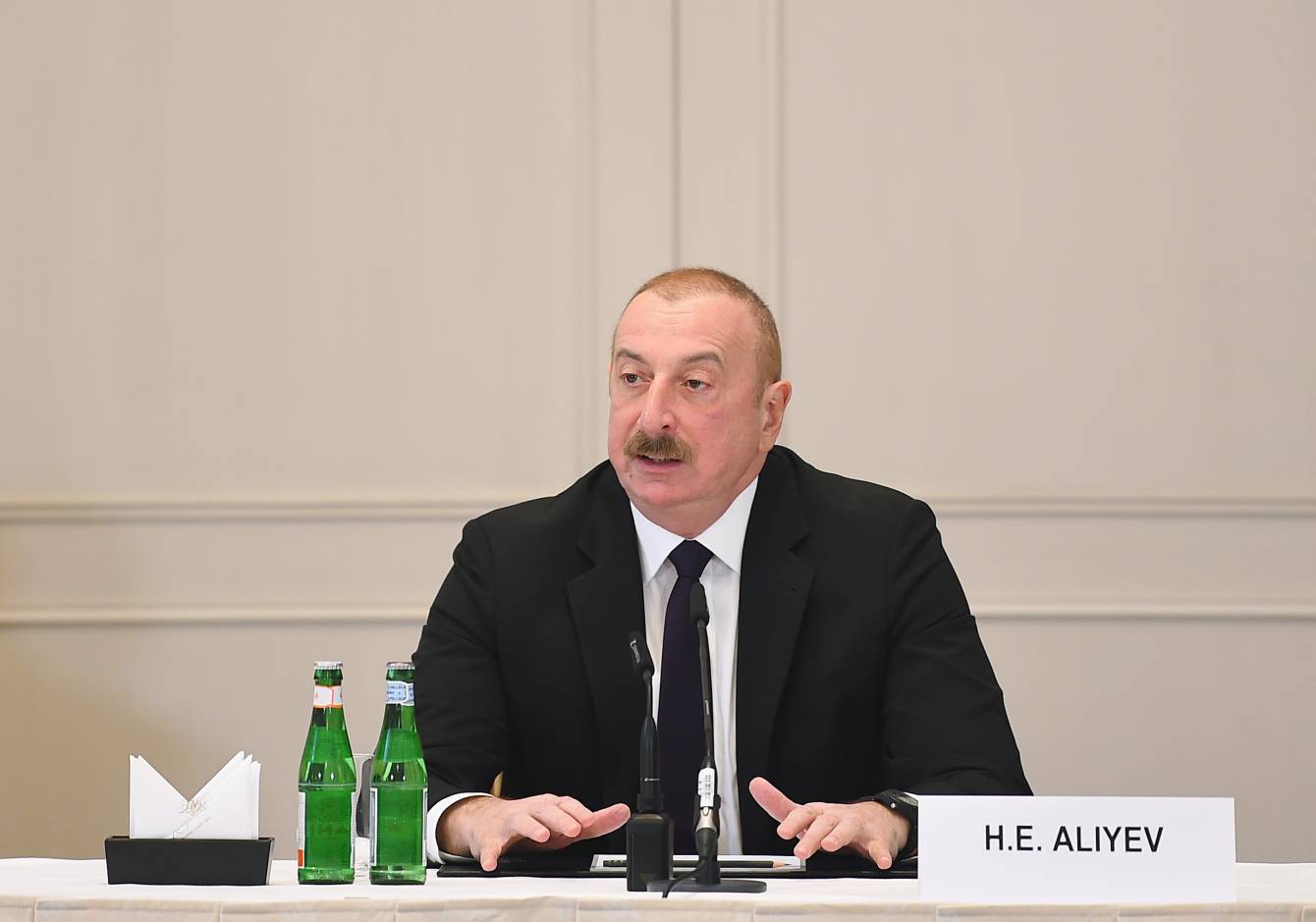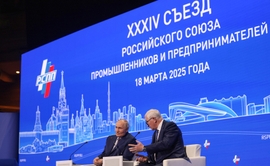President Ilham Aliyev has focused on Azerbaijan’s strategy to meet the increasing demand for natural gas in Europe during a meeting with German businesspeople in Berlin, particularly in light of the crisis stemming from the conflict between Russia and Ukraine.
President Aliyev stated that there was a significant increase in the number of requests for Azerbaijani gas from European countries after the conflict erupted in Ukraine.
“After the beginning of the Russia-Ukraine war, we got requests from more than 10 European countries with respect to gas supply or increase of existing gas supply. And we’re doing everything in order to satisfy the needs of our partners. We already have pretty diversified geography of our gas supply,” the Azerbaijani president said at the meeting with German business decision-makers on Monday.
President Aliyev has further stated that in response to the rising demand for natural gas from alternative sources in Europe, there are plans to increase the capacity of the pipelines.
“In particular, TANAP, which has a capacity of 16 bcm, we will expand up to 32 and TAP, which has a capacity of 10 bcm, will be expanded, we plan up to 20. And that is mainly, because of the growing demand from Europe. Because, you can imagine the pipeline of the length of 3,500 kilometers integrated, free pipeline system commissioned 1st January 2021, now needs expansion,” he said.
As of late 2020, Azerbaijan has emerged as a reliable energy partner for the EU, thanks to its direct supply of gas via the Southern Gas Corridor (SGC). In 2021, European consumers received 8.2 billion cubic meters (bcm) of gas from Azerbaijan, which increased to 11.4 bcm in 2022, and is expected to reach 11.6 bcm this year.
Azerbaijan has demonstrated its willingness to offer more natural gas to Europe by 2027. The Trans Anatolian Pipeline (TANAP), which serves as the primary element of the SGC, is expected to double its current annual supply capacity from 16 bcm to 32 bcm. At the same time, there have been reports that the Trans Adriatic Pipeline (TAP), which forms the European section of the SGC, will transport 20 bcm per year instead of the current 10 bcm.
During a meeting with European Commission President Ursula von der Leyen in Baku in July 2022, President Aliyev highlighted the doubling of natural gas exports to Europe as a top priority. Presently, Azerbaijan has active agreements with several European nations, including Italy, Greece, and Bulgaria, and has noticed a growing demand from other European countries.
In October 2022, President Aliyev inaugurated the Greece-Bulgaria Interconnector (IGB), which enables the direct supply of Azerbaijani natural gas from the Caspian Sea to Bulgaria. Previously, Bulgaria imported Azerbaijani gas at the Kula-Sidirokastro border checkpoint with Greece using an existing pipeline, which had limited capacity and could only transport 250-300 million cubic meters of gas per year to the country. The majority of Bulgaria’s gas purchases, 3 billion cubic meters, were traditionally sourced from Russia.
The IGB interconnector is hooked up to TAP and is expected to reduce Bulgaria’s reliance on Russian gas. The IGB has an estimated technical capacity of 3 bcm per year, with the potential for expansion up to 5 bcm after the construction of a compressor station on Greek territory. The compressor station would also enable reverse flow of gas.
European gas crisis
Amidst an escalating economic conflict between the West and Russia, which is the largest supplier of natural gas to Europe, the European Union (EU) countries are facing a steep gas crisis. In 2021, the EU imported 155 bcm of gas from Russia, accounting for 45 percent of its total natural gas imports.
Due to the West’s economic sanctions against Moscow following its invasion of Ukraine, the supply from Russia has dropped significantly. As of June 2022, Russia’s share of EU gas imports has fallen below 20 percent, and in November of the same year, it was 12.9 percent. Between January and November 2022, less than a quarter of EU gas imports came from pipeline gas and LNG imports from Russia, while another quarter came from Norway and Algeria.
To address the gas crisis, EU leaders agreed in April 2022 to end the supply of Russian fossil fuels completely by 2027. European Commission President Ursula von der Leyen expressed her confidence in achieving this goal.
Meanwhile, Azerbaijan exports approximately 27 million cubic meters of natural gas to European consumers on a daily basis. In the coming year, Azerbaijan is set to supply 12 bcm of gas to the European Union, with projections indicating an increase in total gas deliveries to reach 20 bcm annually by 2027. President Aliyev has expressed confidence in Azerbaijan's ability to provide additional gas to Europe, citing the country’s proven gas reserves of 2.6 trillion cubic meters.







 Azerbaijan has been recognized as one of the safest countries in the world, ranking 90th among 163 countries on the Global Terrorism Index 2025 (GTI).
Azerbaijan has been recognized as one of the safest countries in the world, ranking 90th among 163 countries on the Global Terrorism Index 2025 (GTI).
 The Azerbaijani Defense Ministry has reported ongoing shelling of its army positions by Armenian forces since last week.
The Azerbaijani Defense Ministry has reported ongoing shelling of its army positions by Armenian forces since last week.
 Iranian Foreign Minister Abbas Araghchi has urged the International Atomic Energy Agency (IAEA) to take a "transparent position" regarding potentia...
Iranian Foreign Minister Abbas Araghchi has urged the International Atomic Energy Agency (IAEA) to take a "transparent position" regarding potentia...



